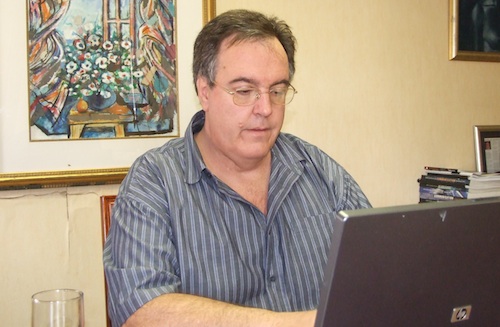
Vodacom has fired a shot across the bow of new mobile entrant, Telkom’s 8ta, in what could be the beginning of what one analyst calls “price skirmishes” between the operators. A full-blown price war looks less likely, analysts say.
Vodacom at the weekend announced a R1,40/minute all-day tariff, taking aim directly at 8ta’s R1,50/minute all-day rate. Unlike 8ta, which bills in per-minute increments, Vodacom charges in 30-second increments after the first minute. Vodacom prepaid users can switch to any of the company’s tariff plans for free once a month.
The company has also introduced a flat rate of 50c for text messages, equalling 8ta’s rate, though, unlike 8ta, it’s not offering free messages after the first five sent each day.
But 8ta’s free minutes incentive may still give it an advantage over its more established rival. For every three-minute call an 8ta user receives, they get one minute of free airtime to use whenever they want.
Though analysts are reluctant to call Vodacom’s new R1.40/minute prepaid rate the beginning of a price war, they say it is the start of better things to come for consumers.
“Vodacom is being reactionary. It wants to remind Telkom that it can easily match its launch price,” says Richard Hurst, senior analyst covering emerging markets at Ovum.
He says Vodacom’s response is less the beginning of a price war, and more the start of a “price skirmish”.
“Vodacom is not really out to start a price war,” Hurst says. “It just wants to let everyone know that it can match the rates,” he says. It is unlikely 8ta will fire back at Vodacom over the new rates, he adds.

World Wide Worx MD Arthur Goldstuck says Vodacom’s lower prepaid tariff was not unexpected.
He says even though Cell C has a similar prepaid tariff plan to 8ta’s, the big operators could afford to ignore it. “With Telkom’s market presence, the incumbents can no longer ignore new pricing,” he says.
Vodacom’s reaction shows what happens when competition in an industry is increased, Goldstuck says. “It doesn’t matter how much intervention you have from regulators, the best way to bring down prices is to open the market to competition,” he says.
MTN last week reintroduced its “100% Mahala” package, which gives its users cheaper calls if they make calls on segments of the network with low call volumes. There have been suggestions that MTN’s decision to reintroduce the package is a response to 8ta’s launch.
However, Goldstuck says the MTN product is too complex for the average consumer. It’s unlikely to be a response to 8ta, he says. “I expect MTN to come up with something else over the next few weeks.”
BMI-TechKnowledge MD Denis Smit says there is no doubt there will be increased competition in the mobile industry. “It’s the beginning of a completely new environment and we will definitely see an increase in competitive products and services,” he says.
However, he says it is difficult to say whether Vodacom’s new prepaid tariff plan is the start of a price war.
Until the Independent Communications Authority of SA (Icasa) releases draft regulations on mobile termination rates, the possible competitive strategies of the mobile operators will remain unclear, he says.
“It’s really the last piece of the competitive puzzle,” he says.
The draft regulations, which will provide details of what mobile operators will be allowed to charge each other for carrying calls between each other’s networks, will be published next Friday.
In the meantime, Telkom has levelled three separate complaints at Icasa against MTN, Vodacom and Cell C, asking the authority to grant it an asymmetrical interconnect rate that favours it as a new entrant. — Duncan McLeod, TechCentral
- Subscribe to our free daily newsletter
- Follow us on Twitter or on Facebook




